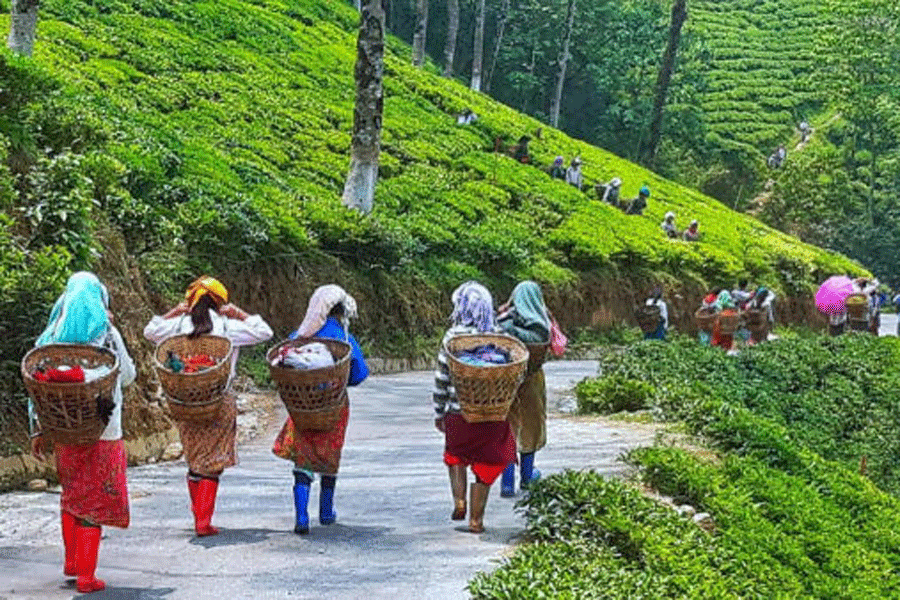The Confederation of Indian Small Tea Growers’ Associations (Cista), an apex body of the small tea growers, on Tuesday wrote to the Bengal land and land reforms department, seeking a slash in the rates fixed by the state government for regularising the growers’ land.
Bengal has around 50,000 small tea growers who contribute more than half of the state’s tea production.
Growers' land was last regularised in 2001, that is, the status of the land of plantations properly recorded and registered in land records.
“The sector has mushroomed over the past couple of decades and among the total growers, barely 7,000 of them have proper land records. It was our longstanding demand to regularise the growers' land, and finally the state government decided to initiate the process,” said Bijoygopal Chakraborty, the Cista president.
However, he said current salaami rates, fixed by the state for the process, were too high.
In April this year, when the state land and land reforms department issued the notification, it said growers with plantations on “rayati’ (privately owned or inherited) land would pay a one-time “salaami” of Rs 25,000 per hectare and those with plantations on vested land Rs 50,000 per hectare.
“The small tea sector is also facing a financial crisis.... The price realisation is too low, and at times, growers are forced to sell the green tea leaves, a perishable item, at rates less than the cost of production. That is why we wrote to the state, requesting a revision of the rates. The rates should be lowered so that growers can bear it,” added Chakraborty.
In the letter sent on November 1 to Smaraki Mahapatra, the principal secretary of the state land and land reforms department, Cista has also sought a campaign up to the panchayat level in the tea-growing districts of Bengal so that more growers come to know their land would be regularised.
“The campaign will be effective in tea-producing districts like Jalpaiguri, Darjeeling, North Dinajpur, Alipurduar and Cooch Behar with a high concentration of small growers,” the Cista president mentioned.
Land regularisation was vital to get benefits from the Tea Board of India, the state and Centre.










